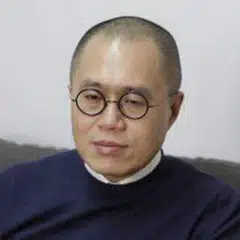Realism and common sense necessary in Hong Kong and mainland China
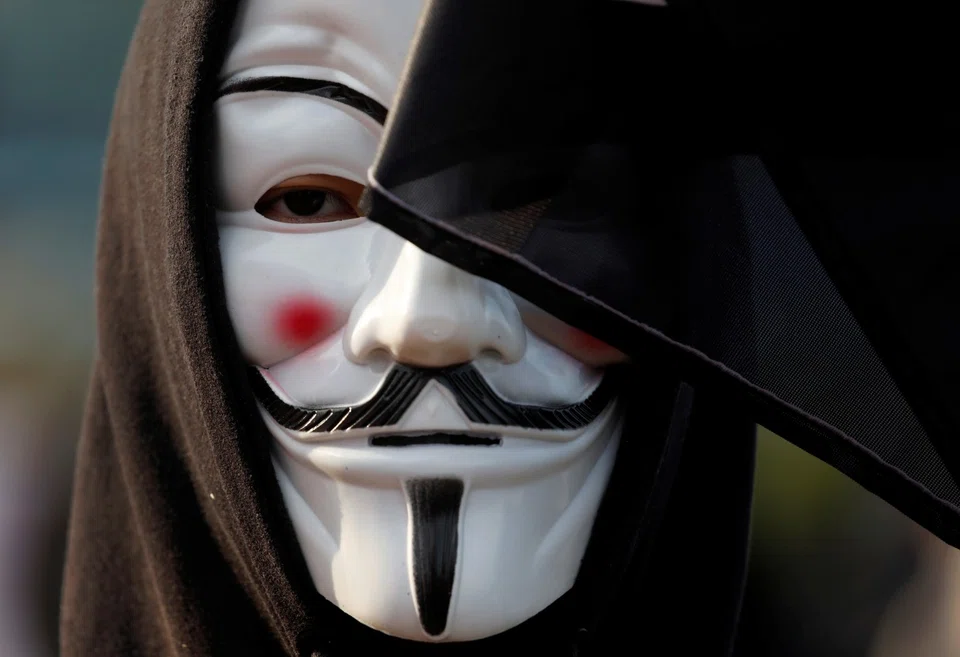
After the District Council elections concluded in November 2019, many people thought that the whole policy for governing Hong Kong would gradually shift to a more realistic track and return to reason. The expectation makes a lot of sense, because the shocking result of the elections will completely change the make-up of the next Chief Executive Election Committee. This means the central government will probably lose its upper hand, not having full control over the matter of deciding the candidates for Hong Kong's future Chief Executive.
In addition, the passing of the Hong Kong Human Rights and Democracy Act by the US will indirectly jeopardise the SAR's status as a separate customs territory and a financial hub. Under such circumstances, shouldn't the central government and agencies involved with Hong Kong rethink their approach from the ground up? Shouldn't they switch to a strategy that is more closely aligned with Hong Kongers' mainstream sentiments, and care more about how the world sees what's happening? And yet, over the past one month or so, signs of any such reorientation are nowhere apparent.
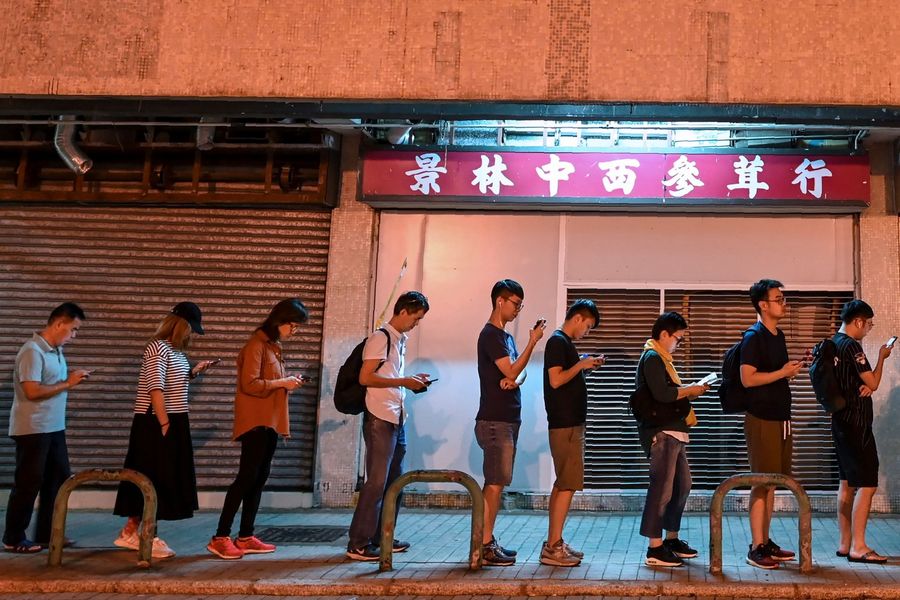
On the contrary, we hear about how Hong Kong ought to emulate Macau and duplicate the success of Macau-style "one country, two systems" in actuality. Supposedly it is best to always keep "a warm current" flowing in the hearts of Hong Kong's youngsters in the future. But why? Why are people saying such things? Is there really no fear that the situation may continue to worsen? Is there really no need to care about the stance taken by Hong Kong's social mainstream or worry about how a change in the SAR's economic standing may impact the entire country? How can people be so unrealistic?
Taking their eye off the game
The whole matter can be viewed from a different angle. Given the fiasco of the District Council elections and its collateral consequences, as far as the central government is concerned, it may be facing a crisis of political power in Hong Kong. In other words, the main issue to deal with in the SAR from here on is no longer about the continued survival of our financial hub, or how the general sentiments of the people are oriented, but whether or not the central government can still maintain its grip on Hong Kong. When any event escalates to the level of "war in defence of the right to rule", everything else is bound to give way. This is all the more the case, as all of China has now gone into a campaigning mode.
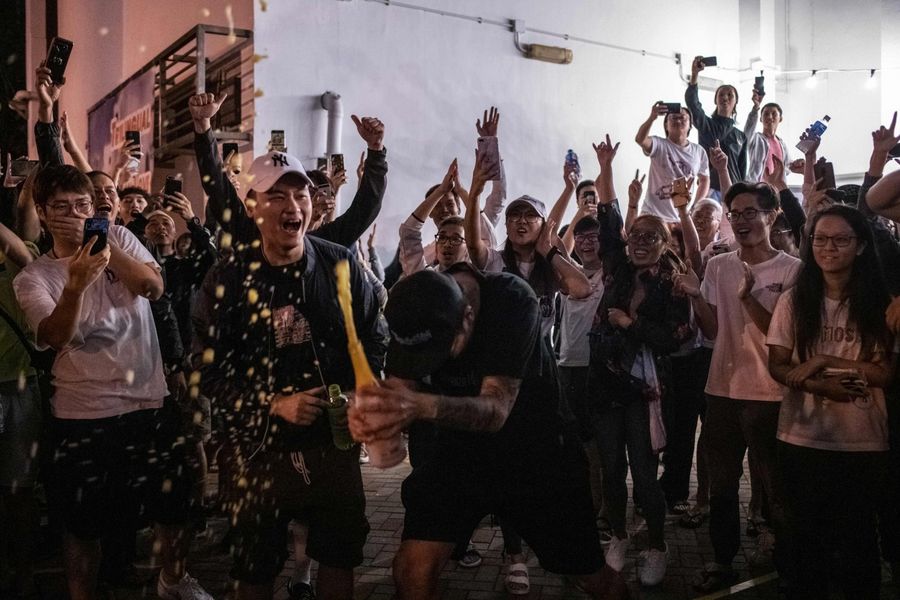
What we generally understand as "realism" will usually be excluded by the very modality of the raging campaign. Here's an example for us to consider: Given that private enterprises across China are now in difficulties, we would expect the higher-ups to not only implement measures for alleviating their predicament, but also put the brakes firmly on the frenetic trend guo jin min tui (国进民退) or the advancing of state-owned enterprises while the private sector retreats.
And yet, lo and behold, recent news about founders of mega corporations resigning or retiring one after another seems to be giving out completely opposite signals.
Secondly, since China may be going all out to compete with the US in the coming age, the whole country should be preparing itself right now in the area of education. It should be nurturing talents, furthering knowledge with higher learning and logic that befits proper academic research. Instead, we see top schools scrambling to revise their constitutions, deleting phrases such as "freedom of thought" and even "the exploration of truth", so as to help cement the Communist Party's leadership.
The precarious situation we are in today goes beyond expectation, but it certainly has its roots and causes somewhere. So why was Carrie Lam chosen in the first place?
It does not take an expert in China's history to know how irrelevant realism and common sense are before the wheels of nationwide campaigns. Let us recall that, despite being way out there from its very beginning, the Great Leap Forward went on for three years. The Cultural Revolution not only rocked the country to its core, but also left behind much trouble for posterity. Were these movements realistic? Did they make sense at all? And still China had to wait till the advent of economic reform for it to rediscover realism.
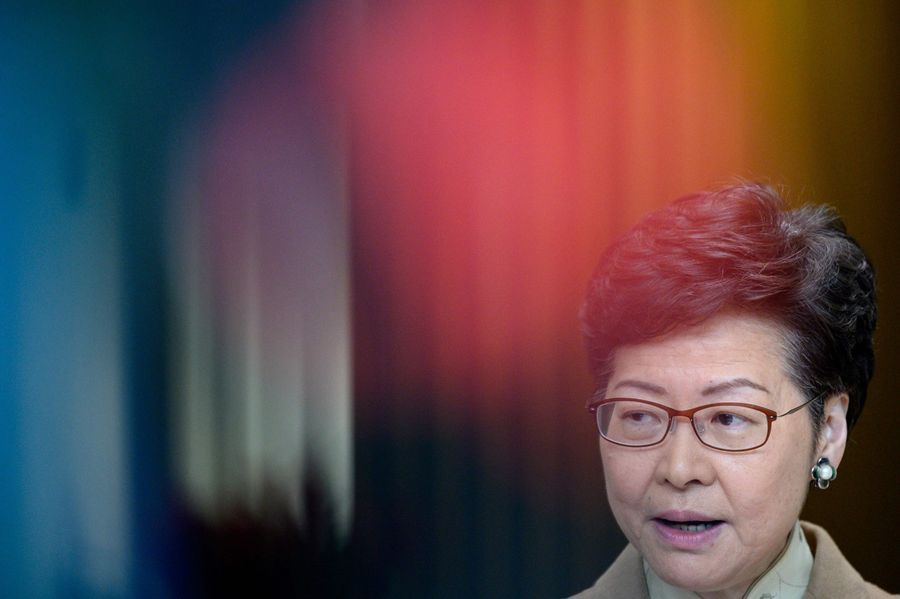
There is an alternative logic in all this. The authorities' take on reality is completely different from that of ordinary folks. For a case in point, we need only look at Chief Executive Carrie Lam. Her shortcomings were actually well known to many seasoned observers of Hong Kong's affairs. Famed for her gung-ho spirit and high efficiency, this administrator often ignored the probable political consequences of policies. She was unpopular amongst fellow officials, far from well-connected in the political circles, and nowhere near compelling as a candidate in the Chief Executive election. Regardless of whether one was from the pro-establishment camp or the pan-democracy camp, that simplest understanding alone would lead one to agree that Carrie Lam was not the ideal person for running a complex city. The precarious situation we are in today goes beyond expectation, but it certainly has its roots and causes somewhere. So why was Carrie Lam chosen in the first place?
If we were to look at this from a different point of view, we would realise that all her flaws are actually "plus points". Her willingness to push policies forward forcefully with no regard for the consequences means she is obedient and bold enough to take on non-negotiable missions. Her poor relationship with the powerful and highborn indicates that neither does she have her own faction, nor is she attached to any particular business group. That she is generally not favoured by Hong Kong's people (according to the mainstream public opinion) means she has no other way but to be loyal to the higher-ups. Similar misfits are not uncommon throughout history. It's just that modern Hong Kongers may not be familiar with the sort of "brilliant" manoeuvre that puts people like that in power.
Let common sense prevail
Many people criticise me for being overly pessimistic in my writings here over the past few years, and have doubts about what I stand for. In recent months, in particular, I have come across as seemingly pooh-poohing the still intense protest movement on purpose. Honestly speaking, when I write my thoughts on current affairs, it has never occurred to me that my responsibility is to cheer any movement on. If I indeed stand for anything at all, it would be this: that, politically, we should always maintain a sensitivity towards reality, and uphold the most basic common sense in our public reason - even when we have come to the extreme moment when realism is being steamrollered by political logic and common sense is being swept along by one political current or another. But what do I mean by the most basic common sense in our public reason? To illustrate, allow me to give an example that will surely displease many yellow ribbons: the "yellow economic circle" that everyone is talking about these days.
Opting for a certain pattern of consumption because of one's political orientation is something I fully understand. However, if one takes it too far and starts wrecking blue-ribbon businesses, such action is completely unacceptable. The reason is simple. If someone expresses any view that I do not agree with, what I should do is engage him in discussion and debate on a suitable platform for exchanges of opinions, isn't it? How could I go and smash up his shop just because his political position differs from mine? If yellow ribbons find such "militancy" permissible, should they not also, by the same token, show understanding for the violence done against yellow-ribbon businesses by blue ribbons? (Yes, I know very well how detestable this sounds in some quarters today.)
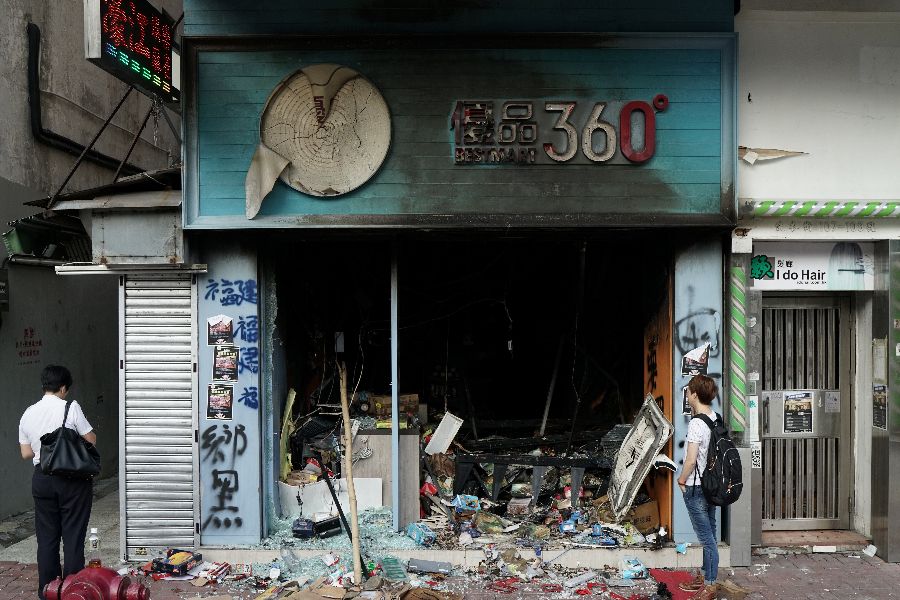
When this column was first set up, I did not plan to write so much commentary on current affairs. I am just an individual living in a historical moment of upheaval, consequently brimming with feelings that I cannot help but express from time to time. As I look back, from the miscellaneous ramblings I originally intended to pen to my eventual discussions on current affairs, nothing I wrote was ever good enough. For this I stand ashamed as I have failed to measure up to Mr Tung Chiao and Mr Jimmy Lai's misplaced favour for me and the zest with which they invited me to join years ago.
Tracing my journey from "The Parrot of Tuoshan" (the earliest name of my column) to "An Ordinary Reader" of today, I bear only heartfelt gratitude for these two gentlemen, as well as the indulgence of Apple Daily's overseers. The person I have let down most is our editor, who often had to work frantically whenever I failed to submit my piece in time because of my busy schedule. Out of my wish to save everyone much trouble, I have tried twice to bow out. Now that permission is granted for me to exit, may our readers find this, in some sense, liberating for them too.
(NB: This is the last of Leung Man-tao's regular column for the Apple Daily. He will continue to write opinion pieces occasionally.)
